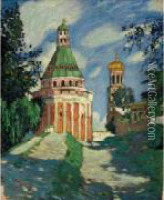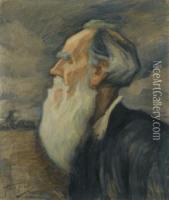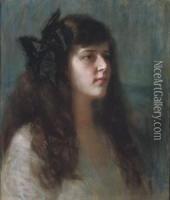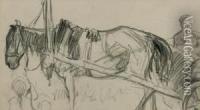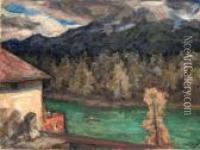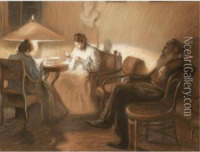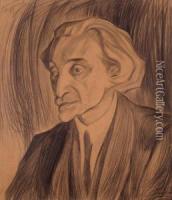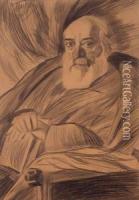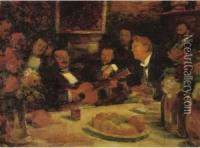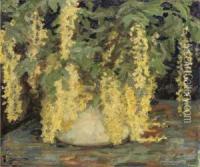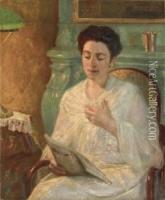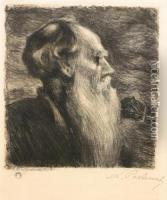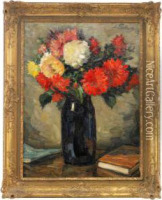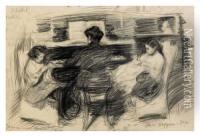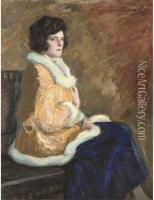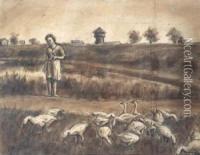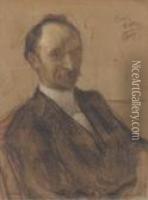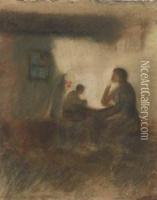Leonid Ossipovich Pasternak Paintings
Leonid Ossipovich Pasternak was a prominent Russian post-impressionist painter. He was born in Odessa, which at the time was part of the Russian Empire, on April 4, 1862, into a Jewish family. He developed an interest in art during his childhood and later pursued his passion despite initial resistance from his parents.
Pasternak attended the Moscow School of Painting, Sculpture, and Architecture and was greatly influenced by the vibrant Russian cultural environment of the time. He became involved with the Peredvizhniki (Wanderers), a group of Russian realist artists who sought to engage with the public directly through traveling exhibitions. His style, however, evolved beyond the realist norms and started to reflect the more expressive and individualistic trends of post-impressionism.
In his early career, Pasternak earned recognition for his portraiture and his ability to capture the psychological depth of his subjects. He painted numerous portraits of famous contemporary writers, artists, and intellectuals, including Leo Tolstoy, with whom he developed a close friendship. Pasternak's works often depicted family life, historical events, and scenes from daily life with a warm, vibrant palette and dynamic brushwork.
As the political climate in Russia became more tumultuous with the rise of the Soviet Union, Pasternak faced increasing difficulties. In 1921, he emigrated from the Soviet Russia to Berlin, where he continued to work and exhibit his art. His paintings from this period increasingly reflected his experiences in exile and the longing for his homeland.
During the rise of the Nazi regime, as a Jewish artist, Pasternak's situation became perilous. He relocated to England in 1938, where he spent the final years of his life. Despite the challenges he faced, Pasternak remained productive and continued to paint, write, and engage with the artistic community until his death on May 31, 1945, in Oxford.
Leonid Pasternak's legacy is not only in his art but also in his family. He was the father of the renowned Russian novelist Boris Pasternak, author of 'Doctor Zhivago'. His other children were also accomplished in various fields. Today, his works are held in numerous collections, including the Tretyakov Gallery in Moscow and the Tate Gallery in London, and they continue to be appreciated for their lyrical and emotive qualities.
